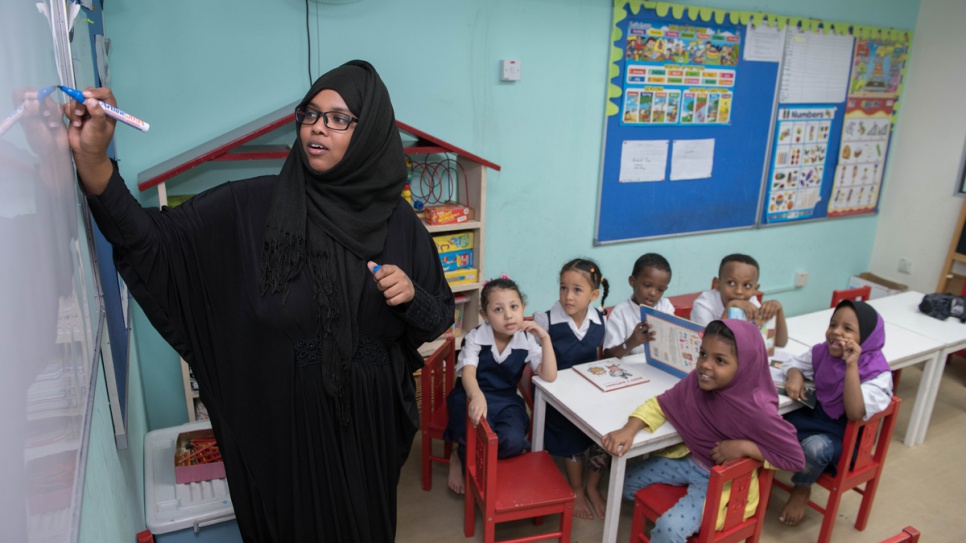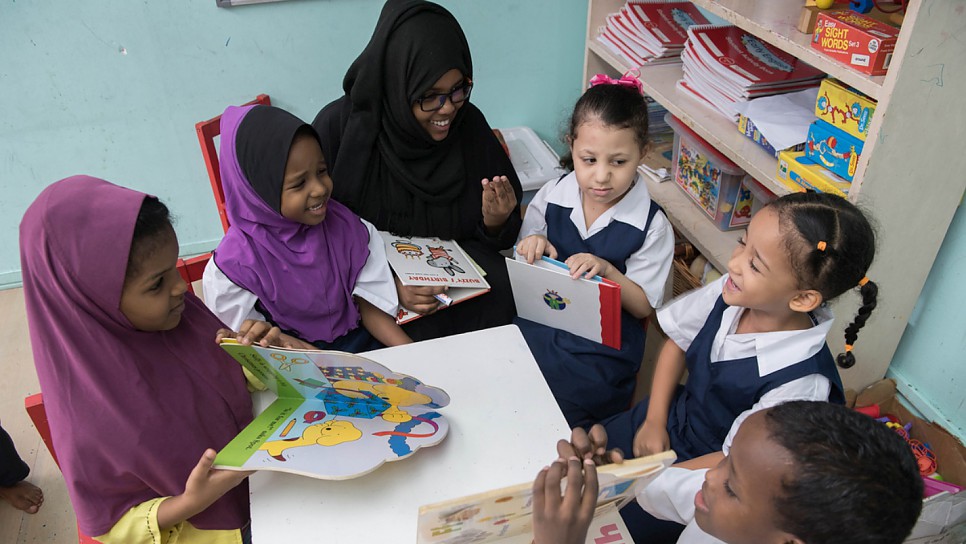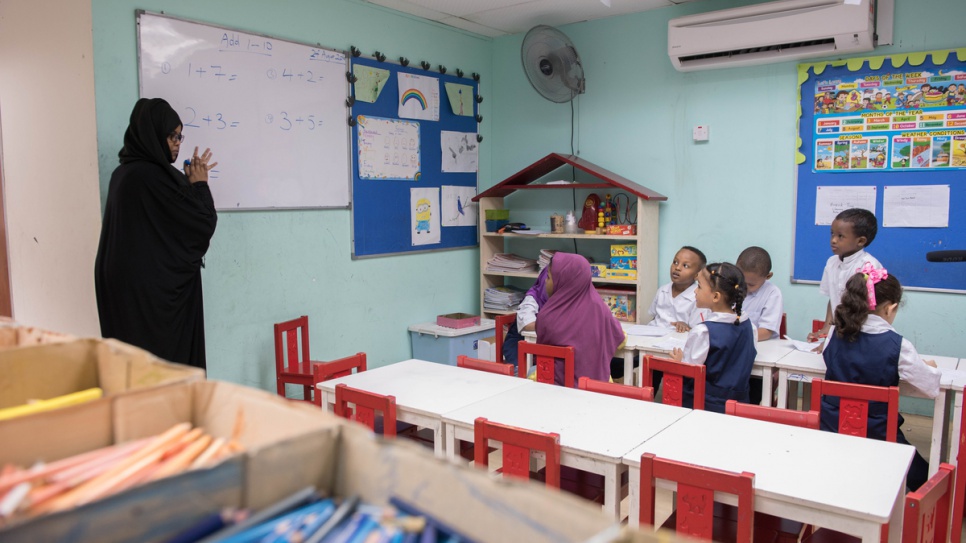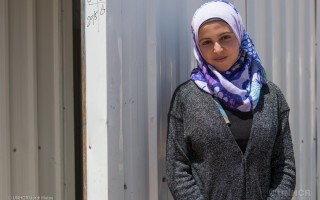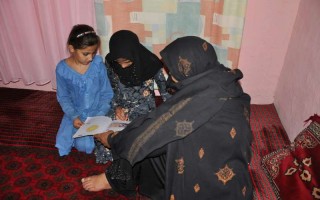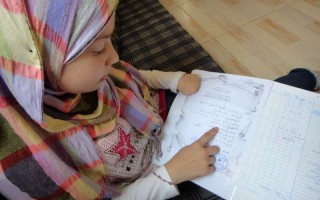For most of her life, Nawa watched as other children went to school. As a refugee, and a girl at that, she was told there was no place for her to learn in the classroom.
That looked set to continue when she arrived in Malaysia, where refugees do not have access to formal education under the national school system. But thanks to the Fugee School, a refugee learning centre in Kuala Lumpur, the Somali refugee was able to learn at an age when her peers were graduating from secondary school.
“I spent 16 years not having access to education and wanting to learn so badly. When I first got my backpack to start Fugee School, I would literally put it on and stare at the mirror just imagining myself as a student,” she says with a laugh. “I started in fifth grade with classmates who were 10 years old or younger. They made fun of me, but I tried to ignore it.”
With just spoken Somali and a rudimentary grasp of English, she failed every class in the first month. But she was determined to learn and quickly caught up, skipping grades as she went along.
“It’s unbelievable how much I learnt in four years,” says Nawa, now 20. “What drives me is that I’m the only person in my family to have access to education and to have gotten this far. I also want to be an example to other women who are afraid to achieve the things they want.”
A strong advocate of women’s rights, she is happy to see more girls than boys in Fugee School now – a reversal of the trend when she first started in 2013. She’s observed that girls do better in class as they choose to study, unlike boys, who are prioritized for school in some cultures and often take it for granted.
“I’m the only person in my family to have access to education and to have gotten this far. I also want to be an example to other women who are afraid to achieve the things they want.”
While she acknowledges that some girls drop out due to early marriage, that trend also seems to be changing. “Before, in Somalia, we would have girls who get married at the age of 12, 14. Now we have so many girls who are aged 20 and above and still not married, and I’m like, ‘Yes!’ ”
Last year Nawa completed secondary-level education at Fugee School before entering the foundation course at the University of Nottingham’s Malaysia campus, where she is doing her foundation course. She is one of 42 refugee students currently enrolled in three universities in Malaysia as a result of strong advocacy with tertiary institutions by UNHCR, the UN Refugee Agency.
While grateful for the opportunity, Nawa feels a knowledge gap between herself and her new Malaysian classmates. “Refugees have been through war and been forced to move so much, so our education is not stable. We have to do extra work and work harder than the locals,” she says.
She continues to volunteer at Fugee School, teaching preschool refugee children three days a week to help them bridge the gap. “My students spoke no English in the beginning. But they learn so fast and now they speak better than me,” she beams. “Here they have the tools to learn – phones, computers, videos, the internet.”
Nonetheless Nawa is fully aware of the challenges facing Fugee School and some 120 other learning centres around Malaysia that are largely run by refugees themselves with the support of volunteers.
“As refugees, the only access we have to education is through the learning centres. They’re working as hard as they can, getting donations, books, qualified teachers. But it may not be really enough for students to achieve the things they want,” she says.
“Every human being has the right to an education. With education, you have the key to unlock every door.”
Structural obstacles aside, there are also social biases to overcome. For Nawa, it has been a personal journey to win the support of her traditionally minded mother. “When I was accepted into Nottingham, she said, ‘No way, I don’t believe it. I need to see proof.’ For a month we fought over me staying on campus, but her attitude is finally changing. Now she sees other students and parents in the community looking to me as an example that refugees can really go to university. It’s encouraged her to be more supportive.”
Nawa plans to study international relations and go on to work for an organization for human rights, or start her own. She credits education, however belated, for making her into the person she is today. “Every human being has the right to an education,” she said. “With education, you have the key to unlock every door. Before I came to Malaysia and started at Fugee School, I did not know what I wanted in the future. But now I know what life is like, what opportunities are out there, and I have better skills to serve the world.”
By: Vivian Tan in Kuala Lumpur, Malaysia

